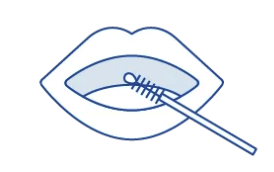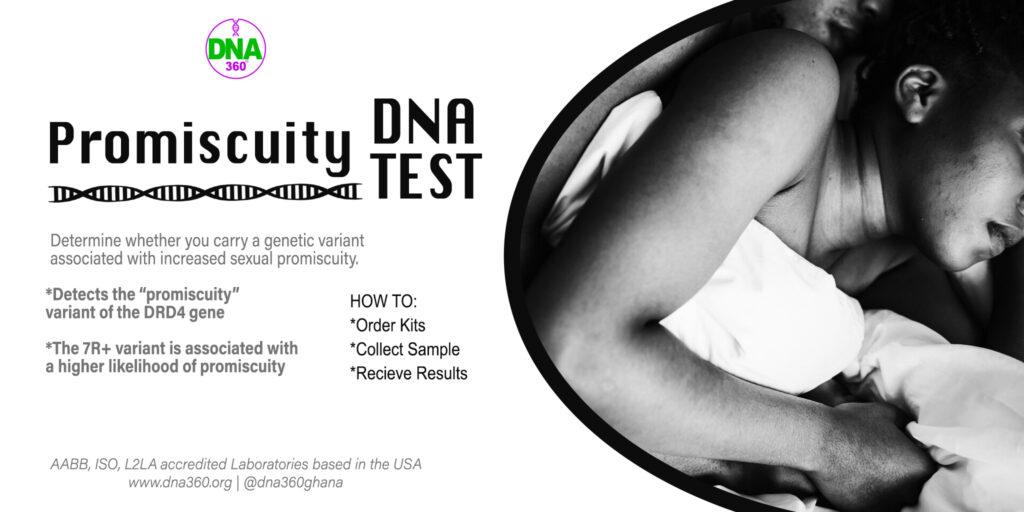Promiscuity Gene DRD4 Test
Determine whether you carry a genetic variant associated with increased sexual promiscuity.
Are you more likely to be unfaithful, because of your genes? Find out if have the “promiscuity” gene with this DNA test.
- Analyzes the RS3 repeat region in the DRD4 gene
- People who inherit at least one allele of 7 or more repeats (7R+) are more likely to be sexually promiscuous
- 100% private and confidential online results
- Do you have the “promiscuity”DRD4 gene?
The “promiscuity” gene is a genetic variant of the DRD4 gene, associated with an increased likelihood of sexual promiscuity.
Dopamine is a neurotransmitter or a chemical made in the brain that gives us feelings of reward and pleasure. The dopamine receptor D4, encoded by the DRD4 gene, binds dopamine and transmits the signal into the cells.
The “promiscuity” gene is also known as the 7R+ version of the dopamine receptor. Altered receptors encoded by these variants bind dopamine less efficiently, compared to the common 4R version. As a result, reduced levels of the dopamine “feel good” signal is transmitted in the brain.
People with the 7R+ variants require higher levels of dopamine to achieve the same “good feeling” affects, and intriguingly sexual activity is a proven way to increase dopamine levels.
The most common DRD4 variant worldwide is the 4R version and approximately 65% of the population carry this version. The 7R form is the next most common (20%), followed by the 2R allele (9%). The other alleles are less common, especially the very rare alleles that have eight or more repeats (less than 1%).
The allele frequency also varies significantly between populations. For example, the “promiscuous” 7R allele is rare in East and South Asian populations, but common in the Americas.
The DRD4 gene is located on chromosome 11. Inheriting a “promiscuity” variant (7R+), is associated with increased promiscuity and an increased number of extra-pair partners.
VariantsTested
Variation inDRD4 often occurs in a 48-base pair repeat region, where the number of repeats can range from 2 – 11.
We inherit two copies of theDRD4 gene – one from each parent. This mean we can inherit two identical copies (e.g. both 4R) or two different copies (e.g. 4R and 7R).
This test determines the length of the repeat region within theDRD4 gene, and specifies the number of repeats an individual has in each of theirDRD4 alleles.
If an individual has at least one copy of the 7R+ allele (includes 7R, 8R, 9R, 10R and 11R), they are twice as likely to be promiscuous compared to individuals with 7R- alleles (less than 7 repeats).
HOW IT WORKS
 ORDER TEST
ORDER TEST
From paternity tests to grandparent tests, we offer a wide range of DNA tests to fit your needs.

COLLECT SAMPLE
Easily swab the participants with our painless mouth swabs, then send the samples to our laboratory for analysis.

RECEIVE RESULTS
Access your confidential results online within 7-14 business days. Our team of experts is available for any questions.

